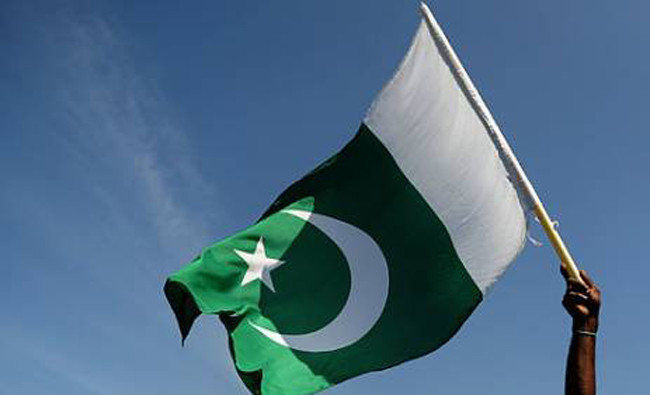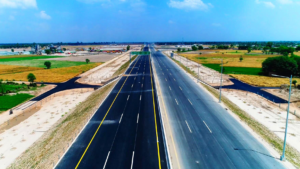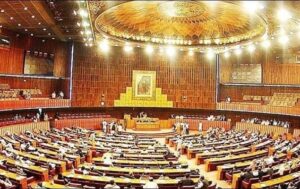In a world when kindness and compassion are sometimes relegated to the background, Pakistan has constantly demonstrated an uncommon dedication to accepting migrants. Even though the nation is renowned for its hospitality, recent judgments on Afghan migrants have been influenced by financial limitations, security worries, and a limited ability to handle a large inflow of refugees, particularly those without valid documentation. It is a difficult undertaking for Pakistan, which is currently hosting 4.4 million Afghan refugees, to solve these issues while also preserving its own security and the welfare of its people.
In the past, Pakistan has frequently given asylum to people in need. Millions of Afghan refugees have been welcomed over the years as they fled conflict, persecution, and violence. This outstanding humanitarian act demonstrates Pakistan’s dedication to supporting its neighbors in times of need. Recent decisions to examine and return Afghan refugees, nevertheless, are motivated by practical concerns rather than a lack of hospitality.
Large-scale refugee hosting has given rise to chances for illicit activity, especially among individuals without legal status, which poses serious security dangers and financial obligations for Pakistan. In certain cases, Afghan refugees have been involved in the trafficking of drugs and weapons, which has helped to foster a criminal society. According to a report from the Ministry of the Interior, Afghan migrants have come to be more frequently linked to criminal activity like rape, robbery, extortion, land grabbing, smuggling, hoarding, and even cooperation with militant groups.
The economic impact is also significant because these immigrants have harmed Pakistan’s economy by growing their enterprises via the use of illicit methods, black money, and tax avoidance. According to a report from the Ministry of Interior, “several armed Afghan migrants have been found involved in treacherous activities against Pakistan, including attacks on the Pakistan Army.”
The presence of Afghan refugees has had an impact on Pakistan’s security environment, with some acts of terrorism and violence being committed by Afghans.
Expanding drugs trade in Pakistan in last few decades also raises questions on the presence of Afghan Refugees. In 2012 and 2013, UNODC in collaboration with the Ministry of Narcotics Control, the U.S. Department of State’s Bureau of International Narcotics and Law Enforcement Affairs (INL) and other national stakeholders conducted a national survey on drug use to estimate the extent and patterns of drug use in Pakistan. The overall results of the survey revealed that approximately 6 percent of the population – 9 percent of the adult male population and 2.9 percent of the adult female population – equivalent to 6.7 million people – had used a substance other than alcohol and tobacco in the preceding year, while nearly 700 people die every day because of drugs related diseases. According to reports the highest opiate users in Pakistan belongs to province of Balochistan and KP, which are the hub of Afghan refugees.
Pakistan is no different from any other nation in the world in allowing refugees to breach the law without consequence. The choice to deport unauthorsedAfghan refugees is consistent with global trends. The number of Afghan nationals deported by Turkey increased by 150% during the first eight months of 2022 compared to the same time in 2021, totaling 44,768. Even the German government is under pressure to resume deporting Afghan refugees who break the law or constitute a threat to society after they were suspended in 2021. While Pakistan’s dedication to supporting Afghan refugees has been praiseworthy, it has not come without costs. The nation has carried a heavy burden in terms of economic difficulties and security risks. Although it is not made lightly, returning undocumented migrants is necessary to maintain Pakistan’s security and sovereignty.
The time has arrived for Afghan nationals to return to their country in peace after Pakistan went above and above its obligation to provide refuge for Afghan refugees. Afghanistan must stabilise and establish an environment where its people may reconstruct their lives and contribute to the development of the country. While Pakistan’s efforts and generosity should be commended, a lasting solution to the Afghan refugee situation must be an international effort that puts both humanitarian principles and security concerns first. The armed services of Pakistan have been instrumental in managing this difficult situation, and their sacrifices on behalf of the country are evidence of their steadfast dedication to defending it.
Courtesy by Omay Aimen – The Nation
Omay Aimen is a researcher, with an interest in national security, international politics, hybrid warfare & geopolitics. She can be reached at manahil.jaffer786@gmail.com




